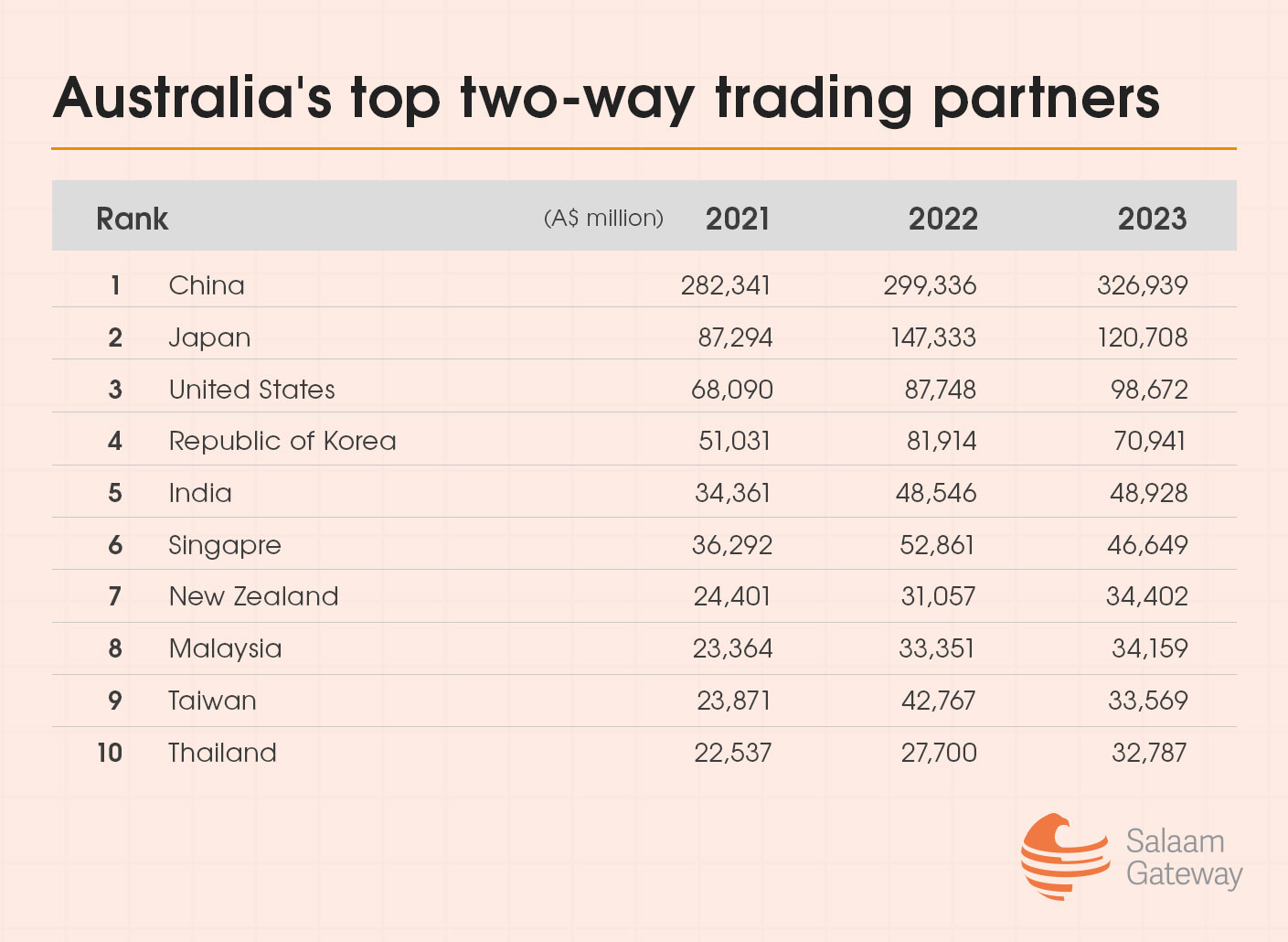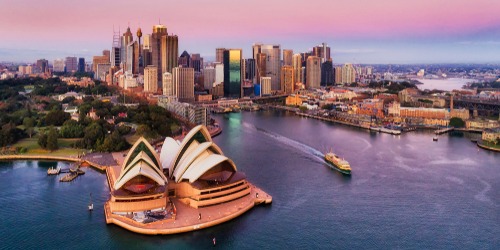Long-standing challenges beset Australia’s modest Islamic finance sector
On surface level, Australia offers several opportunities for the growth of its Islamic finance sector.
The country has a young Muslim population which continues to propel the demand for Shariah-compliant products. It has developed a well-regulated and thriving financial sector, too, and can potentially capitalize on its Islamic finance space to prompt foreign direct investment (FDI) inflows as well as beckon prominent Islamic financial institutions to set up shop.
Yet, despite key positive indicators, long-standing challenges continue to hinder the industry’s progress and development. An unfavourable regulatory environment, funding inadequacy, and lack of trust among consumers are to name a few.
Serving an underserved yet promising community
Muslims accounted for 3.2% - equating to 813,400 - of Australia’s approximately 25.5 million people in 2021, according to latest census data. Whilst the numbers may be modest, they indicate promising prospects for Shariah-compliant products.
Talal Yassine, managing director at Salaam (previously Crescent Wealth), a Sydney-based Shariah-compliant investment manager said that a recent survey of 709 customers revealed 96% were interested in a home finance product that adheres to Islamic finance principles.
“91% ranked Shariah compliance as the most important feature for a home finance product,” he told Salaam Gateway.
For all the optimism surrounding the potential of the Islamic finance space, its current state remains small, with Australia’s Islamic financial assets estimated to be worth $2 billion.
Muzzammil Dhedhy, co-founder of Hejaz Group, a Melbourne-based financial institution identifies three key areas to spur sector growth.
“There is significant potential to expand Shariah-compliant banking products, like savings accounts, personal loans, business banking, and trade finance,” he explained.
The second area is investment products. “Developing more Islamic investment products can attract both local and international investors seeking ethical investment opportunities.”
The third is takaful, REITs [real estate investment trusts], and sukuk.
A handful of financial institutions do offer Shariah-compliant products and services across Australia, including Hejaz; finance and investments provider MCCA; and Melbourne-headquartered Amanah Islamic Finance. Conventional banks also offer some Islamic finance products, such as National Australia Bank (NAB), which extends Shariah-based construction financing.
“We’re playing in the larger commercial property space and are seeing a lot of opportunities in construction residential developments, land sub-divisions, etc. Because of the [country’s] young population, we are getting [interest from] a lot of Islamic schools that are looking to fund new campuses to help accelerate growth,” said Imran Lum, Islamic finance head at NAB.
“It also makes sense for them to get financing that aligns with their school ethos.”
Nevertheless, there are no Islamic banks in Australia, a scenario unlikely to change for a while.
In March, Islamic Bank Australia (IBA) requested the Australian Prudential Regulation Authority (APRA), the country’s financial services regulator, to revoke its licence to operate as a restricted authorised deposit-taking institution.
The lender, which sought to become the country’s first Islamic bank, had received its licence in July 2022.
IBA, renamed to Islamic Money Australia, said it did not have enough capital to operate as a regulated bank and therefore decided to return its licence before any potential legal breach.
Dean Gillespie, CEO of Islamic Money Australia told Salaam Gateway, that once they raise sufficient capital - currently in progress - they would re-apply for a licence.
“Our plans haven't changed,” he added. “We [have] approached Islamic investors and private equity houses in Australia and the Middle East.”
However, he conceded that it has been a challenge to raise financing in regions such as the Gulf, as a lot of investors are not familiar with Australia as an investment proposition.
“Nonetheless, we are hoping to complete our fundraising within the next three to four months,” he said.
Regulatory, trust issues chip away at sector growth
Although Australia’s banking sector is developed and well regulated, practitioners complain existing laws are not favourable for facilitating Islamic finance transactions.
“While there have been improvements, the regulatory framework is still not fully conducive to the unique needs of Islamic finance, creating hurdles for market entry and growth,” said Dhedhy.
Gillespie added that major challenges such as taxation exist. “We have written to relevant lawmakers and called for these regulations to be amended to accommodate Shariah-compliant [policies],” he explained. “It will take some time to change and adopt.”
In addition to unfavourable regulations, stakeholders also point to the lack of trust stemming from poor performance and high fees associated with Islamic finance products.
For example, three of Crescent Wealth’s investment products failed APRA’s performance tests last year as returns underperformed benchmarks.
“The annual performance test to assess relevant super products is based on benchmarks set by the government, and do not take into account faith-based or ethical investment criteria, like criteria associated with Shariah-compliance principles underpinning the fund's underlying investments,” noted Yassine.
Reclaiming consumer trust is expected to be a cumbersome process. “As an industry we need to focus on having the right governance structures in place,” explained Lum.
Depleting trust coupled with a lack of awareness regarding Islamic finance products means Shariah-compliant service providers have their work cut out.
“Despite being the first Islamic bank in the country, we will have to work to gain trust as well as be competitive on a price basis,” said Gillespie. "There is a lot of distrust among incumbent conventional banks in Australia.”
Boosting foreign inflows, trade ties
Hejaz’s Dhedhy suggested that by offering Shariah-compliant financing options, Australia can attract investment from Muslim-majority countries as well as investors seeking ethical investment opportunities.
Australia is seeking to strengthen economic ties with Muslim-majority countries like the GCC and Southeast Asian states to fuel trade and develop its investment landscape.

The UAE is Australia’s largest trade and investment partner in the Middle East. Bilateral trade (goods and services) stood at $9.3 billion in 2022, while the UAE’s investment in Australia totalled $12.6 billion the same year. The two countries started negotiations for a bilateral free trade agreement last December.
Qatari and Australian chambers also signed a memorandum of understanding in May to improve trade and investment opportunities. Bilateral trade of goods and services reached approximately $2.4 billion in 2022-23.
Furthermore, economic relations between Australia and Malaysia have strengthened in recent years, with bilateral trade equalling $18.57 billion in 2023.
“[Additionally], Islamic finance can facilitate trade with countries in the Middle East and Southeast Asia, where Islamic finance is more established. This can lead to stronger economic ties, increased bilateral trade, and a more diversified investment portfolio for Australia,” Dhedhy added.
What’s in store ahead?
On balance, there are several domains across the country’s Islamic finance sector that offer immense potential for growth.
Australia could mirror initiatives of other countries to develop a robust regulatory framework, a strong funding pipeline and educational campaigns that help increase awareness of Islamic finance and Shariah-compliant policies.
Such initiatives coupled with rising demand from young Muslims will continue to ensure that opportunities across the sector stay abound.
*Edited on July 22, 2024, with changes to paragraphs 11 and 12.

Hassan Jivraj